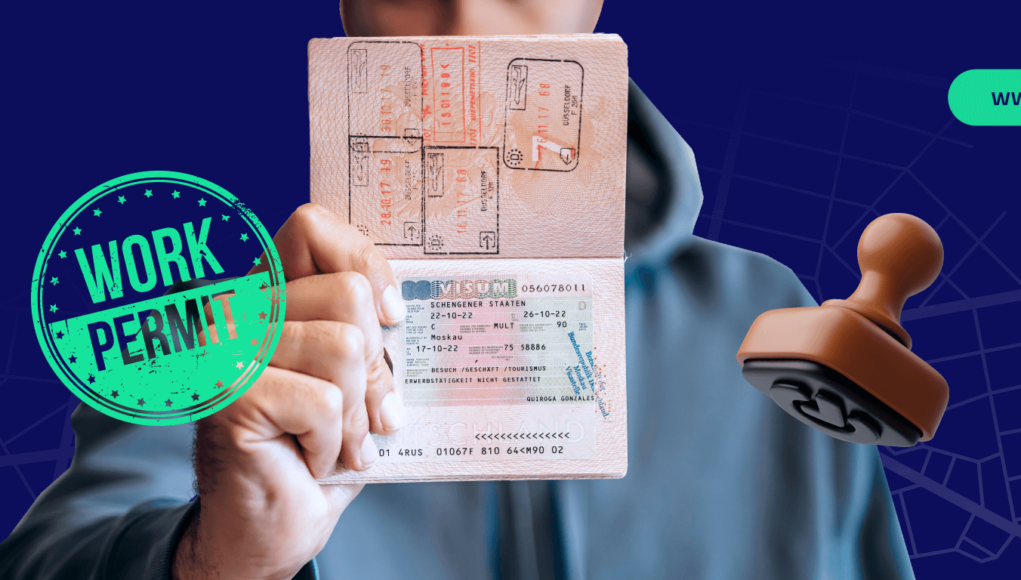Navigating the visa and work permit process is crucial for expats seeking to work in the Old Continent. This guide explores the specific requirements for Europe’s top 11 BPO destinations, catering to both EU and non-EU nationals.
The BPO sector in Europe is booming. During the pandemic, a whopping 74.7% of customers saw a steep decline in their customer service experience. It was only the proactive companies that managed to retain success during this period. And one of their top priorities was to create a positive environment in which their agents could provide the best customer service available.
More companies followed this lucrative tactic. Now we see more and more focus on the BPO sector, especially in Europe. This boom has created a surge in demand for skilled workers across the continent. To fill these positions, many companies are looking beyond their borders, attracting a growing number of expats willing to work abroad. European countries are proving to be particularly attractive destinations for these international professionals.
Top 11 BPO career destinations in Europe
Ireland
EU citizens(plus Norway, Iceland and Liechtenstein), Switzerland or the UK can work without a visa or work permit.
Non-EU citizens will need a type of work permit
General Employment Permit (GEP): Most common for BPO jobs. Requires a valid employment contract with a minimum salary threshold (currently around €34,000 annually).
Intra-Company Transfer (ICT): For those transferring within a multinational company.
Specific Purpose Employment Permit (SPEP): For specialized roles or short-term projects.
See all the types of employment permits for Ireland here.
After you have the employment permit, non-EEA citizens must apply for a visa to move abroad to Ireland.
Average processing time for Ireland work visa: 8 weeks
Netherlands
EU citizens have freedom of movement within the EU. This allows them to work in the Netherlands without a visa.
Non-EU citizens will need a working permit and visa.
TWV (tewerkstellingsvergunning): work permit. After you apply, you will receive a decision from the UWV in the next 5 weeks.
GVVA (gecombineerde vergunning voor verblijf en arbeid): combined residence and work permit.
Both work permits use the same application criteria. The difference is that foreign citizen workers can apply for a GVVA themselves, but only employers can apply for a TWV.
Get informed on the procedures of obtaining a work permit in the Netherlands.
Average processing time for Dutch work visa: 14 days
Expats planning a move to Amsterdam, here’s what’s waiting for you!
Poland
EU/EEA or Swiss Nationals: The open borders of the EU mean working in Poland requires no visa for you.
Non-EU Nationals require a work permit and visa.
Work Permit: There are 5 types of work visas to apply for. The general procedure for applying for a work visa in Poland entails two steps:
- The employer applies for a work permit on your behalf
- You apply for the visa at a Polish embassy
Additionally, non-EU/EEA or Swiss citizens must get a residence card.
Average processing time for Polish work visa: up to 3 months
Bulgaria
EU Nationals: EU integration removes visa hurdles; you can work freely in Bulgaria.
Non-EU Nationals will need a work visa.
Type D Work Visa: Before employees can apply for the visa, the employer will apply for the permit on their behalf.
Average processing time for Bulgarian work visa: 35 days
Spain
EU Nationals: Forget visa applications! EU citizenship allows them to work directly in Spain.
Non-EU Nationals require a working visa
Work Visa: Before you apply for your work and residence visa, your employer must obtain a work authorization. Sponsorship from a Spanish employer is required. The specific visa type (work authorization card) may vary depending on the employment contract and duration of stay.
Average processing time for Spain work visa: 30 days
Portugal
EU Nationals: As an EU national, you have the freedom to work in Portugal without needing a visa..
Non-EU Nationals need a visa to work in Portugal.
Work Visa: You can work in Portugal with a Residence visa for exercising a professional activity as an employee and you will need a Residence permit.
Average processing time for Portugal work visa: from 60 to 90 days
Greece
EU Nationals: The perks of EU citizenship include visa-free work opportunities in Greece.
Non-EU Nationals need a visa to work in Greece
Type D Work Visa: The specific visa type will depend on factors like job qualifications and contract duration. Sponsorship from a Greek employer may be required.
Average processing time for Greek work visa: from 6 days to 3 months
Hungary
EU Citizens: EU membership streamlines employment; they can work in Hungary without a separate visa.
Non-EU Citizens need a visa and permit to work in Hungary.
Work Permit & Work visa: Sponsorship from a Hungarian employer is required. There are 4 types of work permits a foreigner can apply for, the most common being the one for employment, issued to individuals who have a job offer or are employed by a Hungarian employer or company.
Average processing time for Hungarian work visa: 3 months.
Estonia
EU Nationals: EU freedom of movement means they can work in Estonia without a work visa.
Non-EU Nationals need a work visa for Estonia.
Work Permit: As a non-EU citizen, you’ll need to obtain a temporary residence permit if you’re planning on being in Estonia for more than a year. But if you’re in a hurry to get to Estonia, you can apply for a long-term (D) visa first, then for a temporary residence permit once you’re there.
Average processing time for Estonian work visa: from 2 weeks to 1 month
Slovenia
EU Nationals: Being an EU citizen eliminates the need for a visa to work in Slovenia.
Non-EU Nationals need a permit to work in Slovenia.
Single Permit: Combines both work and residence permits into a single application. Sponsorship from a Slovenian employer is typically required.
Average processing time for Slovenian work visa and residence permit: up to 6 months
Romania
EU Nationals: EU citizenship grants them the right to work in Romania visa-free.
Non-EU Nationals require a work permit for those seeking employment.
Work Permit: Sponsorship from a Romanian employer is required, as they will apply for the work permit on your behalf.
Average processing time for Romanian work permit: 30 to 45 days.
Average processing time for Romanian work visa: 20 to 60 days.
To sum up
Now that you’re armed with this knowledge, it’s time to explore the exciting career opportunities that await in Europe!
Head over to our website and browse our extensive listings of jobs across Europe. We connect talented individuals with leading companies in the industry, helping you find the perfect fit for your skills and aspirations.
Don’t let visa complexities hold you back from pursuing your dream career in Europe. We’re here to help you navigate the process and land your dream job. Visit our website today and take the first step towards an exciting future!









